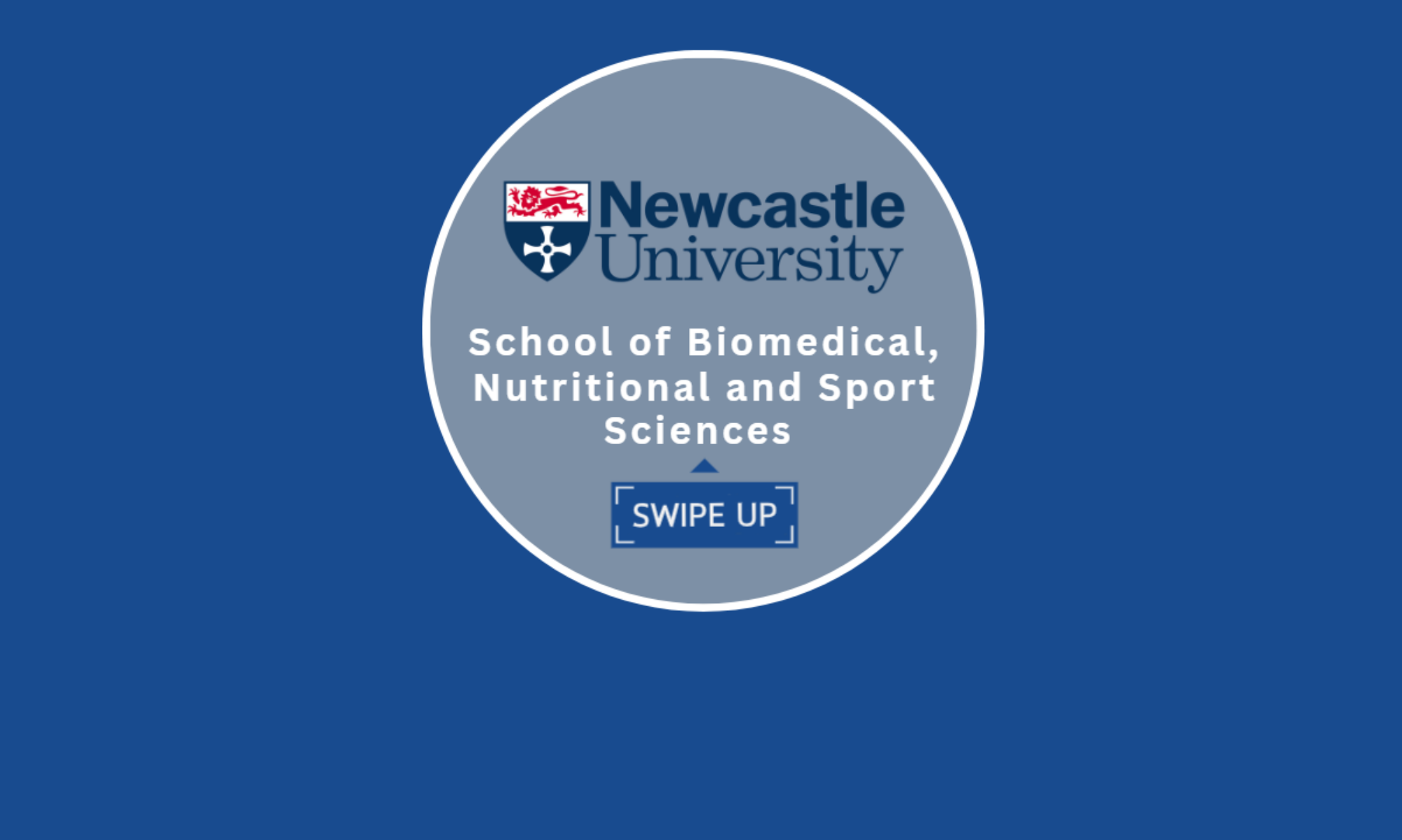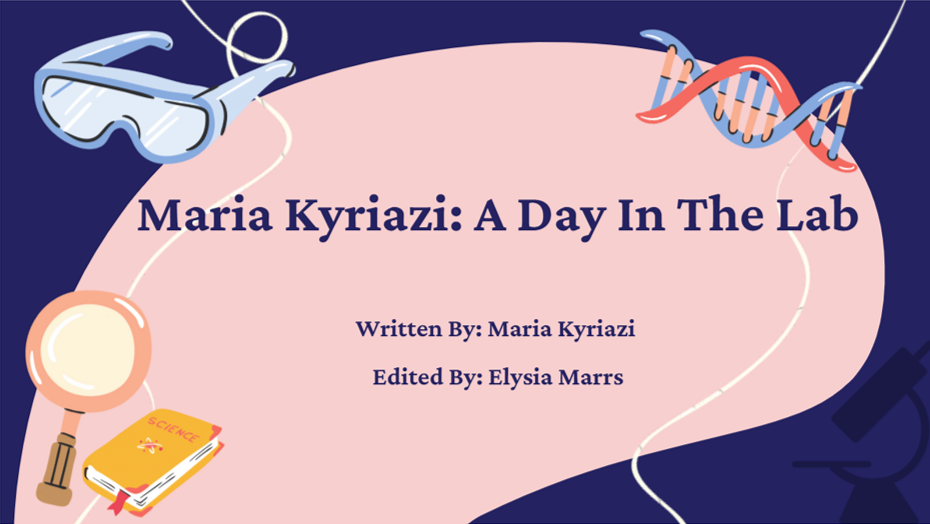Written By Maria Kyriazi
Edited By: Elysia Marrs
Interviewed By: Elayna Hugh-Jones, Elysia Marrs
Hi Maria, what do you study here at Newcastle University?
I am an MSci Biomedical Genetics student and currently, I am undertaking my third-year Research Project for the completion of my bachelor’s degree. Therefore, I am investigating a specific protein, SGO1 and its role in female chromosomal ageing.
What is your topic of research in the lab?
My research project focuses on investigating the potential mechanisms leading to missegregation errors that are detected with the maternal age effect. For instance, after the age of 35, women are more prone to born children with chromosomal abnormalities such as Down syndrome (“trisomy 21”), or Edward’s syndrome (“trisomy 18”), which happens due to the decrease of a complex, known as cohesin, that holds sister chromatids together until the end of the second meiotic round. Essentially, I am investigating a specific protein, known as SGO1 (“shugoshin” = guardian in Japanese) that protects centromeric cohesion and, therefore, missegregation errors. My project aims to determine that this protein decreases in women after the age of 35, explaining the increased numbers of older women giving birth to children with chromosomal abnormalities after a certain age. To do so, I am using cutting edge technology, including immunofluorescence and dCas9 designed constructs which I visualize in fixed or live conditions using Zeiss LSM 880 Airyscan microscope.

What does a typical weekday look like for you?
I usually start the day early in the morning by reading papers and articles that will contribute to my write up. Around 9 am, I arrive at the lab, which is based in the Centre for Life, and I organise my notes and protocols to be ready to start my experiments.
After I discuss the schedule for the day with my supervisor, I conduct my experiments. Typically, due to the nature of my experiments, as I am working with mouse and human oocytes, I have long gaps in between. Therefore, I try to productively fill them by writing my notes to keep my lab book up to date and continue reading relevant scientific papers for my topic. During the break, I try having lunch with my friends whose project is also based at the same building, but unfortunately, this is not always the case due to the different schedules. Around 6 pm I finish my day at the lab and have a short walk in the city before returning home. I really like walking while listening to music, as I find it very stress relieving, so I try to do this as often as possible. When I go back home, I catch up with my notes, in case I have not finished them whilst being at the lab, I cook dinner, and catch up with my family.
What do you get up to on the weekend?
I don’t go to the lab on the weekends but I spend most of my time catching up with my write up. I currently have only two weeks left to write my dissertation, so I plan the sections and prepare my figures. Besides that, I plan the experiments I will do for the upcoming week by looking at my data and identifying what might have gone wrong, finding ways to solve them, and once done, preparing my notes for my discussion with my supervisor. Other than that, I am also working as a Laboratory Technician Intern on behalf of the University. Therefore, due to my dissertation commitments, I work remotely for the time being during the weekends, analysing data and doing literature-based research. On the weekends, I also meet up with my friends and catch up, as it is less possible throughout the week. I also like baking a lot, so I try to do that as well.
How do you relax/ get your mind off work?
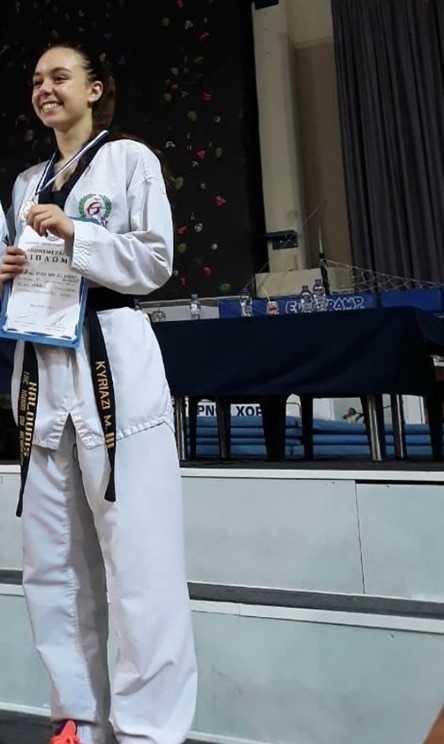
I find that meeting up with my friends really helps me get my mind off work and relax. At the moment, because our schedules are tight during the week, we try meeting up outdoors so that we have that social sense that was very limited throughout the past two years due to the unforeseen circumstances with COVID-19. However, when we are all very tired (which is quite often for the past few weeks), we like staying indoors, doing movie nights and making popcorn.

Other than that, I like spending time walking around the city, especially at Quayside. Before my third year and the lockdown, I was highly engaged with sports. My stress relief from schoolwork has always been Taekwondo. I started Taekwondo at the age of 5, and until now, I have a black belt and I am competing at National level Championships back in my home country. I joined Newcastle University’s Taekwondo club, during the first year of my studies, and I was lucky enough to continue what I truly love and also make amazing friends who welcomed me from the first day. Unfortunately, due to my tight schedule with my coursework at the moment, I had to stop training, but I am aiming to resume my trainings and compete again next year.

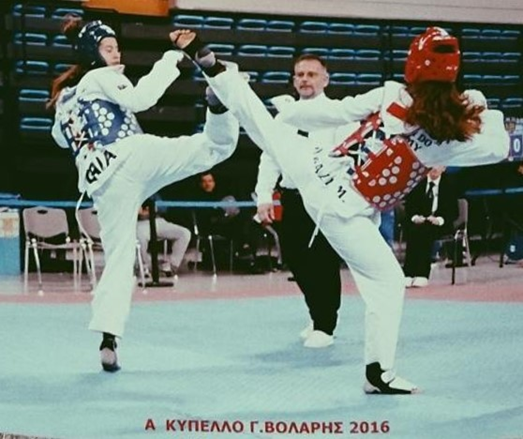
What has been your highlight of studying genetics at Newcastle University?
Investigating research has been the highlight of my academic years. During my first year, I was very nervous during the lab sessions and intimidated by the fact that I was conducting the experiments slower than the students around me. As English is not my native language, I struggled to grasp all the information given at the time and so, it was challenging for me to learn all those new techniques and use the equipment and materials given. However, my Summer Placement here at Newcastle University, during my second year, helped me to boost my confidence at the lab and work on my weaknesses. My very supportive supervisor, as well as, his PhD students, have significantly contributed to my passion for research and preparation for my third-year Project, which has enabled me to work more independently at the lab and understand exactly the reason for carrying out certain procedures/experiments.
What is the working environment like in the lab? Is it intense or intimidating?
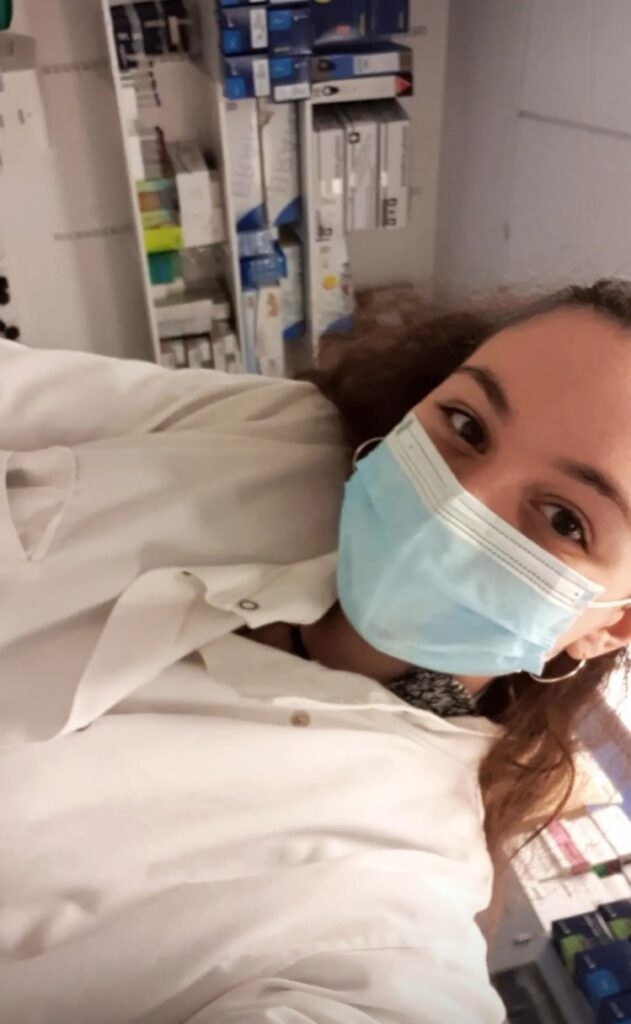
I would not describe it as intense, or intimidating. However, it definitely requires dedication and patience, because unfortunately, things do not always work as planned. I was unlucky and lucky at the same time to fail several experiments to realize that. Although you may have prepared all the reagents as supposed, organized all the protocols, and conducted the experiment as required, you may still not get the desired outcome.
For me, this was very disappointing when I started, because I thought that I was doing something wrong (which was the case sometimes), but most of the time the way I conducted the experiment was not the reason it had failed. And this is research. You cannot always predict if things will work, which is very annoying sometimes, but also what makes lab work so intriguing.
Do you have support in the lab?
Yes, you do have support at the lab. Besides your supervisor, who is the person that leads all the lab work, there are also PhD students or Research Associates (Post Docs’) whom you can ask for help or discuss about the experiments.
Would you recommend doing a summer placement or taking a year placement?
Definitely! The experience gives you confidence in using materials and conducting experiments and a greater understanding of what is going on in the lab. In the case of an academically-based placement, it is a wonderful way to get to know your lecturers who are working as Researchers at the same time and get very useful and helpful advice from them. In the case of an industry-based placement, it is a great way to get an insight into how the industry works and how things are outside of academia, which also creates contacts with potential future employers.
Interested in genetics research? Check out Newcastle’s Biomedical Genetics Course Here.
